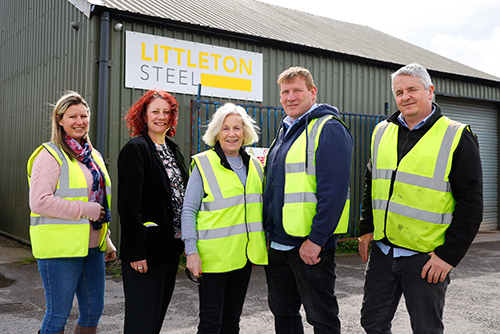
BCSA News and Insights
President's Column May 2025
12/05/2025
Category: President's Column
The British Steel conundrum
The recent eleventh-hour government intervention at the British Steel plant in Scunthorpe clearly demonstrated two things. First, that it was a perilous decision to hand over the control of one of the UK’s vital and strategic industries into foreign ownership and second, that the government’s manifesto pledge to remove fossil fuels from the UK electricity grid by 2030 was not based around a carefully planned project.
Thankfully, steel production in Scunthorpe has continued and the consultation on possible redundancies at the plant has now been halted, but the whole lamentable saga could have been avoided had the Government followed its own plan to (quote) ‘provide clean, homegrown power that we control’.
Instead, to meet the Government’s manifesto pledge, we have systematically closed down our coal-fired power stations which has resulted in the UK having industrial energy costs that are between 60% to 300% higher than our European neighbours, and thus made it extremely expensive to maintain energy-intensive manufacturing such as steel production. Was it therefore a surprise to hear that Jingye, the owners of British Steel, were not prepared to follow the path taken by Tata in South Wales to further invest in the conversion of the coal-powered blast furnaces in Scunthorpe to more environmentally-friendly electric arc furnaces (EAFs) that require no less energy to run and with little confidence that the national energy grid will be upgraded soon?
EAF steel production has been around since 1907 (no, that’s not a typo) but if we were able to miraculously replace every basic oxygen furnace (BOF) in the world with an EAF equivalent, there simply isn’t enough global scrap steel to feed them, and this situation will not change for some time. Thus, alternative ways of decarbonising the traditional methods of steel making are badly needed to maintain the increasing global demand.
However, from a national perspective, the UK does generate an equal amount of scrap steel each year to match our current annual consumption. Therefore it would seem a logical business decision to plan a progressive transition from BOF to EAF. Although this time, let’s not rely on the business decisions of others above our own national interests.
As an aside, and despite what many believe, this transition would not result in the loss of our ability to produce what is referred to as ‘virgin’ steel in the UK. The term is more associated with a production method that uses natural resources rather than (say) recycled steel, and EAF technology is already a proven method of generating equal qualities and grades of steel that are produced by what we term as the traditional methods.
As I have clarified in this column before, the UK Steel Construction Industry does have a strong and efficient supply of vital components from our European neighbours, but we also deserve to have a regular and controlled domestic supply of steel to ensure a healthy and competitive sector and provide business certainty and opportunities for all BCSA members.
At a time when self-sufficiency and domestic growth are emerging as prominent goals for many countries, let’s hope that it isn’t too late to save this difficult situation, whether the solution be permanent or temporary nationalisation. We only need to look back on the similar situation that arose with Rolls Royce in the early 1970’s to see what last-minute government intervention can lead to. However, I wouldn’t put too much hope on the US Government helping us out on this occasion.
Gary Simmons, BCSA President

Previous article
25/04/2025

Local MP champions a stronger British steel sector during visit to Littleton Steel
Tessa Munt, the MP for Wells and Mendip Hills, recently visited Weston-super-Mare-based Littleton Steel, a constructional steelwork fabricator supporting major infrastructure projects across the South West.
Next article
16/06/2025

President's Column June 2025
As this is my final column before handing over the baton to the next BCSA President, it is appropriate to reflect on the events and changes that have affected the steelwork construction industry during my two years in office.


